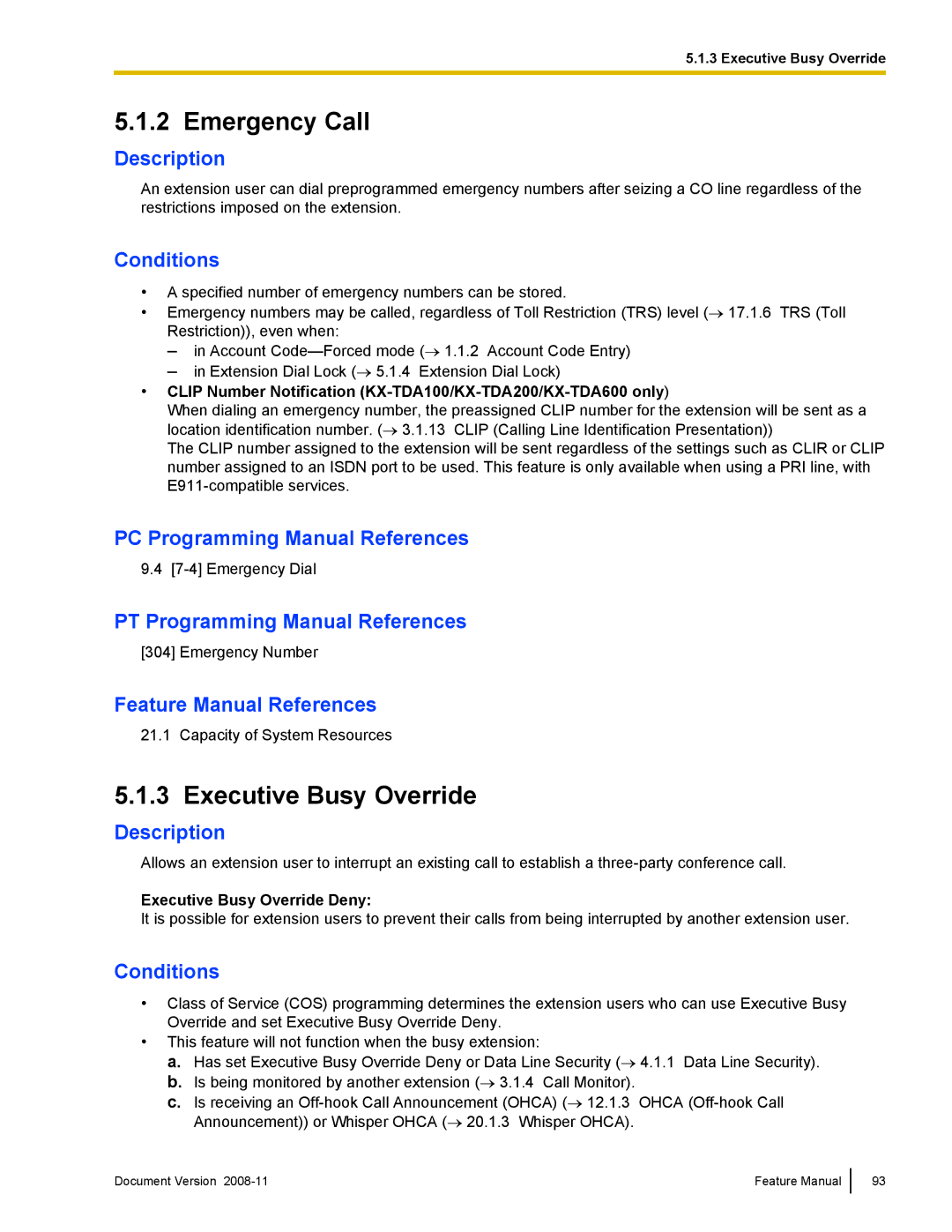
5.1.3 Executive Busy Override
5.1.2 Emergency Call
Description
An extension user can dial preprogrammed emergency numbers after seizing a CO line regardless of the restrictions imposed on the extension.
Conditions
•A specified number of emergency numbers can be stored.
•Emergency numbers may be called, regardless of Toll Restriction (TRS) level (→ 17.1.6 TRS (Toll Restriction)), even when:
–in Account
–in Extension Dial Lock (→ 5.1.4 Extension Dial Lock)
•CLIP Number Notification (KX-TDA100/KX-TDA200/KX-TDA600 only)
When dialing an emergency number, the preassigned CLIP number for the extension will be sent as a location identification number. (→ 3.1.13 CLIP (Calling Line Identification Presentation))
The CLIP number assigned to the extension will be sent regardless of the settings such as CLIR or CLIP number assigned to an ISDN port to be used. This feature is only available when using a PRI line, with
PC Programming Manual References
9.4
PT Programming Manual References
[304] Emergency Number
Feature Manual References
21.1Capacity of System Resources
5.1.3Executive Busy Override
Description
Allows an extension user to interrupt an existing call to establish a
Executive Busy Override Deny:
It is possible for extension users to prevent their calls from being interrupted by another extension user.
Conditions
•Class of Service (COS) programming determines the extension users who can use Executive Busy Override and set Executive Busy Override Deny.
•This feature will not function when the busy extension:
a.Has set Executive Busy Override Deny or Data Line Security (→ 4.1.1 Data Line Security).
b.Is being monitored by another extension (→ 3.1.4 Call Monitor).
c.Is receiving an
Document Version | Feature Manual |
93
